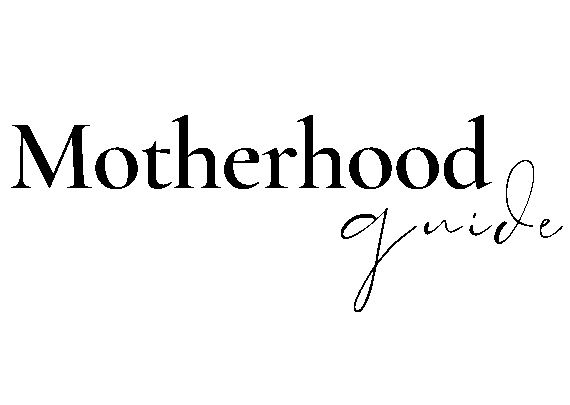A Simple Test That Might Help You To Understand How Ready Are You For Your Child To Leave Home And To Enter An Empty Nest Stage
Instructions: Answer each question based on how you’ve been feeling lately. Reflect on the past few months and answer truthfully. At the end of the quiz, you’ll find insights into how prepared you are on emotional, psychological, and practical levels for the empty nest stage. I created this test to identify areas that may need improvement before this significant life change.
1. How emotionally prepared do you feel today for the transition of your child leaving home?
- A) While it will be some struggles, I understand that this is a normal part of life, and I feel can handle it.
- B) I’m getting ready for some emotional challenges. I might need time and help to adjust.
- C) I feel like I’ll have a hard time letting go, and the thought of them leaving feels overwhelming.
- D) I can’t imagine life without them at home, and I’m unsure how to cope with that change.
2. How do you feel about your role as a mother once your child moves out?
- A) I’ve already started shaping my identity outside of being “just a mom,” and I’m looking forward to having more space for personal growth.
- B) I’m not really sure what comes next for me, but I’m curious to exploring new roles and possibilities.
- C) Today I’m feeling lost about what my role will be. I’ve always been focused on my children, and I’m unsure who I am outside of motherhood.
- D) I’m afraid that my identity will be completely tied to my child, and without them at home, I’ll feel irrelevant.
3. How do you feel about your child’s level of preparedness for life on their own (financially, emotionally, and practically)?
- A) They are financially educated, emotionally resilient, and capable of managing daily tasks like cooking, cleaning, and budgeting.
- B) My child still needs guidance in some areas, like budgeting or managing time effectively.
- C) They might struggle with basic life skills like cooking or managing finances.
- D) I feel they are unprepared in many ways and might struggle significantly with living independently.
4. How often do you feel that you and your child still need each other emotionally?
- A) I feel balanced and confident they will still turn to me for support when needed.
- B) While they’re becoming more independent, they still rely on me emotionally, and I’m okay with that.
- C) They still need me emotionally more than they should, and I’m not sure how that will change when they leave.
- D) I feel like they still need me emotionally too much, and I’m worried about how I’ll cope with their growing independence.
5. How prepared do you feel for the loneliness or emptiness that might come when your child moves out?
- A) While I’ll miss them, I see it as an opportunity to invest in my own personal growth and relationships.
- B) I expect to feel lonely at times. I have strategies in place (like hobbies, social activities) to cope with it.
- C) I’m worried about feeling lonely and unsure how I’ll cope with the quiet and solitude.
- D) I’m scared of the loneliness that will come with them leaving. I’m not sure how I’ll adjust to a quieter, emptier home.
6. How do you view your relationship with your partner once your child leaves home?
- A) I’m looking forward to spending more quality time with my partner and rediscovering our relationship.
- B) I’m open to strengthening our relationship, but I expect some challenges as we adjust to more time alone together.
- C) I’m worried about losing connection with my partner. I’m unsure if we’ve neglected our relationship over the years.
- D) I’m concerned that our relationship might suffer once the focus shifts away from our child and we have more time alone together.
7. How do you feel about the financial responsibilities you’ll have after your child leaves home?
- A) I’m already adjusting to the change in expenses, I have it all planed and saved.
- B) I’ve thought about it, and while it will take some adjustment, I feel confident financially.
- C) I’m unsure how the financial changes will impact me, especially if I’m still helping my child with expenses.
- D) I’m worried about how I’ll manage the financial changes once my child leaves. I haven’t planed or saved yet and I may need more time to adjust.
8. How comfortable are you with the thought of your child living far away or becoming fully independent?
- A) I know they need to spread their wings and live their own life. I raised them for the time when they will be self sufficient.
- B) Thinking about it makes me a little nervous, but I understand that independence is part of their growth.
- C) I’m concerned about them being far away or handling things on their own. I’d rather have them close to me.
- D) The thought of them being independent or far away is difficult for me to accept. I don’t think I’m ready or I will ever be. I’d try to convince them to stay somewhere close by.
Results
Now, count how many A’s, B’s, C’s, and D’s you’ve marked, and see which letter has the most markings. Once you’ve identified the letter with the highest count, read the interpretation results to understand how ready you are for your child to leave home.
Mostly A’s:
You are, without question, emotionally and mentally prepared for your child to leave a nest. You have long since recognised the need of shifts, and you’ve carefully moderated your mind with the realities of this transition. It’s clear you understand the challenges that come with the empty nest stage, but you approach them with a quiet confidence. While there may be moments of emotion, your perspective is grounded in a deep, conscious belief—not only in your child’s readiness, but in your own power to manage this next chapter with self control.
This transition will not overwhelm you; rather, it will serve as a natural evolution. You have already prepared your child for this moment, teaching them the life skills necessary to thrive independently. And through this, you’ve ensured they are both emotionally and practically equipped for adulthood, believe me something many fail to do.
You’ve done the work. Your child is ready for life. As you both adjust, it’s clear that you will face this new reality not just with strength, but with style.
Mostly B’s:
You have a solid foundation for navigating the empty nest transition, however some aspects will require more time and thoughtful management. Your awareness of what’s coming is solid, though certain challenges may arise as you move forward.
The concept of distance—whether in terms of physical space or emotional separation—can understandably trigger a sense of loss or you might get an urge to bond with your child no matter time or distance. This is, of course, part of the natural evolution, you just need to obey their boundaries.
As you move from a hands-on caregiver to a more advisory, supporting role, there is a challenging shift in your relationship dynamic. It’s a transition that, while positive, can be challenging to navigate as it requires redefining your purpose within the family structure.
If at any point you feel uncertain or overwhelmed by this change, I recommend exploring my Parenting Adult Children coaching program. This programs is specifically designed to help moms like you manage sometimes funny nature of the parent-child relationship during this new stage that we have little to non guidance. Your path forward is unfolding with intention, and with the right parenting tools, and self awareness you’ll continue to handle this transition with growth.
Mostly C’s:
It’s clear that the empty nest transition is weighing heavily on you. The thought of your child leaving home has left you feeling uncertain, perhaps even terrified. While you do have some level of preparedness, the emotional and practical complexities of this shift may feel like a lot to manage. It’s entirely normal to feel this way, but it’s important to recognise that seeking support and guidance can make a world of difference in navigating this challenging time.
I recommend you revise your answers and take proactive steps to address the aspects that were hart to admit. Maybe engaging in my Parenting Adult Children coaching program could provide the much-needed tools and strategies to help you better understand and cope with the emotional shifts.
It’s also worth considering your child’s preparedness, particularly in areas such as financial literacy, or overly expressed emotional attachment, that can be your source of anxiety. If this is causing you stress, take a step back and assess how you might approach this with your child. Encouraging open conversations about these important topics could ease some of your concerns and help your child feel more equipped for adulthood. Sending your child for a quick trip abroad can be a good test to see how you both are dealing.
You might also find it beneficial to focus on reconnecting with your partner. This is the perfect opportunity to invest time in rediscovering the intimacy and quality time that may have been overshadowed by the busyness of parenting. Strengthening this relationship can provide you with a sense of fulfillment and emotional grounding during this time of change.
Ultimately, taking action now, whether through support systems, relationship building, or addressing your child’s next step, will help you navigate the empty nest phase with greater confidence and peace of mind. Don’t hesitate to seek out the resources that will empower both you and your child as you both adjust to this new chapter.
Mostly D’s:
…it’s clear that you are not yet ready for your child to leave home. This transition it self flags many emotions and triggering feelings of loss, uncertainty, and even fear. These emotions are entirely valid, it’s okay to not be fully prepared for such a significant change. Acknowledge the weight of this transition, and understand how you could tackle it otherwise.
For women who have heavily invested in the role of caregiver, the departure of a child can trigger an identity crisis or a sense of distress, especially if that role has defined a large part of who they are. It’s important to consider seeking guidance to help you redefine your sense of purpose moving forward. Engaging in parenting coaching sessions or even therapy can provide clarity and help you explore new ways of thinking about your identity, one that is not solely tied to caregiving.
The shift in your relationship with your child may feel like a loss of intimacy, and that’s completely normal. Both you and your child are adjusting to new roles, and it’s a delicate process that takes time. Emotional dependency can vary greatly between families, but this change often signals a redefinition of how you relate to one another. While it’s natural to feel a sense of grief, remember that this shift in dynamics doesn’t diminish the bond; it simply evolves.
You do not need to face this alone—I strongly recommend sharing your struggles with your partner, seeking support to help you navigate the emotional complexities of the empty nest phase, which can sometimes lead to depression or feelings of purposelessness. Believe me it’s a very real experience for many moms. Important to recognise these feelings early on so that you can take proactive steps to address them.
The journey ahead may be challenging, but with the right support and resources, you can gradually move through this transition, rebuild your sense of self, and discover new ways to embrace your evolving role in both your child’s life and your own.












